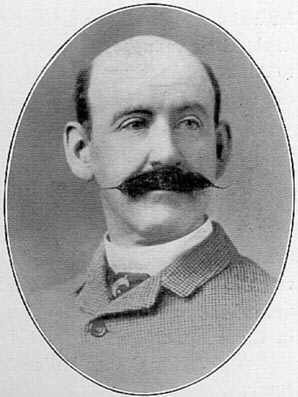
Doctor of Theosophy Scott G. Birdseye is Director of the Department of Antiquities and Anachronisms at the Montsylvanian Institute of Science and Agriculture
The twelfth century saw Jewish people divided geographically, spiritually, and culturally, spread throughout the Middle East and Europe and caught in the midst of cultural clashes between the Christian and Muslim worlds.
Born into this strife, Moses Maimonides sought unification, both of the Jewish people and of the varying ideas which dominated philosophy and theology in his time. A renowned philosopher, doctor and theologian, Maimonides began his career with writings which sought to do away with the divisions within the Jewish theology and ideas about interpretations of the Mosaic Law, and later in life sought to reconcile the Biblical and Aristotelian constructs of the world.
In a time which saw the Jewish people surrounded by a myriad of hostile peoples and philosophies, Maimonides saw unification as the only way to ensure survival of the Jewish culture and religion. However, in a world dominated by Islam, the ideas, teachings, practices and culture of the Muslims played an important role in influencing the unique writings of Maimonides, the eminent Jewish scholar of the Middle Ages.
Moses Maimonides, although the most prominent, was only one in his family’s long line of scholars1. His father, Rabbi Maimon, studied and commented on The Law in Cordova, Spain, which was a center for both Jewish and Islamic learning. Moses Maimonides was born in Cordova in 1135, and at a young age, through his father, was exposed to the eminent philosophies of the day, as well as to many Jewish writings.
The invasion of the Almohades, a group of fanatical Muslims, into Spain in 1148 disrupted the early life of Maimonides, as they sought to tyrannically force all Jews under their control to accept the teachings of Muhammad or face death. Although many Jews publicly converted to Islam while privately continuing their Jewish faith, most chose to flee, and among them were Rabbi Maimon and his family, who, unwilling to accept either alternative offered by the Almohades, fled to Morocco, and later to Palestine. In Palestine, the Latin Kingdom of Jerusalem, which held a tenuous control over the region, was no more friendly to the Jews than were the Almohades, forcing Maimon to settle in Egypt.
In response to the forced conversions of Jews in the Maghreb, Maimonides composed the “Essay on the Sanctification of the Name of God,” in which he sought to reconcile Biblical condemnations of idolatry with the pragmatic need to publicly convert for survival.
This work, which provided a stark contrast from the traditional view of accepting martyrdom as the only solution, was extremely popular with Jews throughout the Maghreb and established Maimonides as an important new voice within Jewish thought.

As his prominence grew within the Jewish community, so did his popularity with the Muslim rulers of Egypt. Maimonides became a court physician for one of the viziers of Saladin, and, as a leader of the Jewish community in Egypt, was well respected by both Jews and Muslims. Writing in Arabic, he began work perfecting the Jewish calendar system, and also contributed to the Talmud.
The most important of his early works were his defenses of the rabbinical view of The Law, which supported the Talmud as necessary to human understanding of Moses’ writings, and sought to doctrinally unify Judaism. With his background in medicine, Maimonides spoke of the rabbis as spiritual doctors, seeking to save the Jews from the disease of division and internal conflict.
By 1175, Maimonides was recognized as the sole secular ruler of the Jews in Egypt and as the greatest rabbinical authority in the world, as his ideas on the importance of the Talmud became accepted doctrine. His ultimate goal, however, was the unification of the Jewish people, and the strengthening of Jewish religion which would enable this to happen.
In his later writings Maimonides began his attempt to bridge reason and religion and to unify the Jewish philosophy with the Aristotelian sciences1. This desire is expressed fully in what is the most important of his later works, Guide for the Perplexed. The Guide, which is in the form of a letter to Maimonides’ student Joseph ben Judah, was written for the purpose of helping those who were devout Jewish followers of The Law, but also held Aristotle’s views, many of which contradict Biblical ideas.


Throughout the Guide, Maimonides discussed many different philosophical themes, including proofs of theism, the Problem of Evil, practical virtue, the authority of prophesy and of Mosaic Law, divine attributes and the relationship between morals and ethics. Written in Arabic, the lingua-franca of the region, the Guide was seen by Maimonides as the solution to every question of faith, thought and life which could be relevant to the Jewish people.
Maimonides however, was not the first to attempt reconciliation of Aristotelian philosophy with later theistic religious belief. He was aware of the earlier works involved in bringing together Aristotle and the Kalem (a grouping of early Christian proofs for theism which had been co-opted by later Muslim scholars as proofs of Islamic principles).
The influence of Muslim philosophers such as Ibn Bajjah, a commentator of Aristotle, and al-Farabi Ibn Sina, who spoke of philosophy and science as ways to use rational thought to show the truth of religious belief, can also be seen in the writings of Maimonides.
However, it was not the philosophy and religious ideas of the Muslims which had the most profound influence upon Maimonides, but rather, their political and cultural dominance of his world. In the Guide, Maimonides illustrated a correlation between earlier Egyptian slaver and the twelfth century oppression at the hands of the Muslims and Christians, and described how lessons learned in Egypt continued to provide insight, just as lessons learned under the Muslim yoke would provide insight for future generations.
While influenced by some Muslim philosophers, Maimonides refused to give up his Jewish beliefs, which formed the basis of his philosophy. He denied Muhammad and the Koran, and declared that the Jews were God’s sole representatives on earth when he wrote “After the act on Mt. Sinai, all Israel became his witnesses and no other proof was needed.” Thus Maimonides described the unnecessary nature of both Christianity and Islam, and renewed the idea of the Jews as God’s chosen people, thereby certifying in the Jewish people the need to unite not only for the practical purposes of survival, but also as a sacred duty to God.
While Muslim thought and philosophy inspired Maimonides’ greatest work, Guide for the Perplexed, only in a casual manner, Islam defined the world in which Maimonides lived. This world brought external pressure onto the Jewish people, leading them into a choice of two possible futures; unification and survival or division and extinction. Maimonides took it upon himself to do what he could to ensure that the Jewish people took the first choice. His writing, which sought to provide a union of several differing religious ideas within Judaism and also to provide for a strengthening of the Jewish doctrine by reconciling it with the world’s dominant scientific view of the natural universe, enabled the Jewish people to come together in order to secure the survival of their unique philosophy and way of life.
For more information on Mainmonides and other notable Hebrews please consult your local library’s Non-Fiction Section, visit your local neighborhood Rabbinical scholar, or just type “Maimonides” into an internet search engine. These and other methods of information gathering should yeild you a lifetime’s worth of study materials on Mainmonides and other amazing scholars of the Jewish faith. Enjoy.




